After a business has been operational for a steady length of time, it is common for its information to end up on the dark web, and the same is true for private individuals as well. Personally identifiable information (PII), passwords, credit card information, and other data seem to accumulate on the dark web over time with little an individual or business can do to stop it. Dark web scans and other cybersecurity services can help mitigate the effects of your information being stolen, but how does your information get into the hands of hackers in the first place? And can anything be done about it?
Data Breaches

More often than not, a business’ data will end up on the dark web because of a data breach. While a direct attack on the company can siphon data to malicious actors, it is much more common for third-party data breaches to leak information. Your business relies on outside services for a variety of reasons, and if any of the businesses you give information to suffers a data breach, then your data will get stolen in that attack. Because third-party data breaches may not be announced immediately and sometimes a business will not even know it’s been attacked, it can be difficult to determine which data breach leaked your information and how long it has been on the dark web.
Phishing and Malware Cyberattacks

Direct attacks on your business can also result in information being leaked onto the dark web. If an employee falls for a phishing attack and their credentials are stolen, then malicious actors will use that entry point into your network to scrape as much data as they can. Email addresses, phone numbers, and any available PII will be taken and sold in dark web marketplaces for less than the price of a cup of coffee. Additionally, misconfigured web-facing assets can also accidentally expose information about your business, and malicious actors may find this information and sell it on the dark web before you even know the problem exists.
Dark Web Monitoring

Unfortunately, there is often little a person or business can do to entirely prevent their information being leaked onto the dark web. Limiting the information given to third parties and training staff on strong cybersecurity habits can help, but it is likely that at some point a hacker will find some information about your business worth selling. Small and large businesses should focus on monitoring the dark web so that they can change credentials once they are stolen and better react to the consequences of their data being stolen. A strong cybersecurity defense coupled with reaction plans for leaked information will give your business the best chances of preventing stolen data from becoming a business ending cyberattack.
Summary
Data breaches and cyberattacks on third party companies make it difficult to entirely prevent your information from ending up on the dark web, but your business can work with an IT consultant to catch leaked information earlier and plan mitigation strategies for when things go wrong. Here at Robinett Consulting, we aim to bring our decades of experience to small businesses so that they can have all the tools they need to monitor the dark web and keep their information safe. If you need a partner in IT that can monitor the dark web for you, then our team is waiting to hear from you today!




